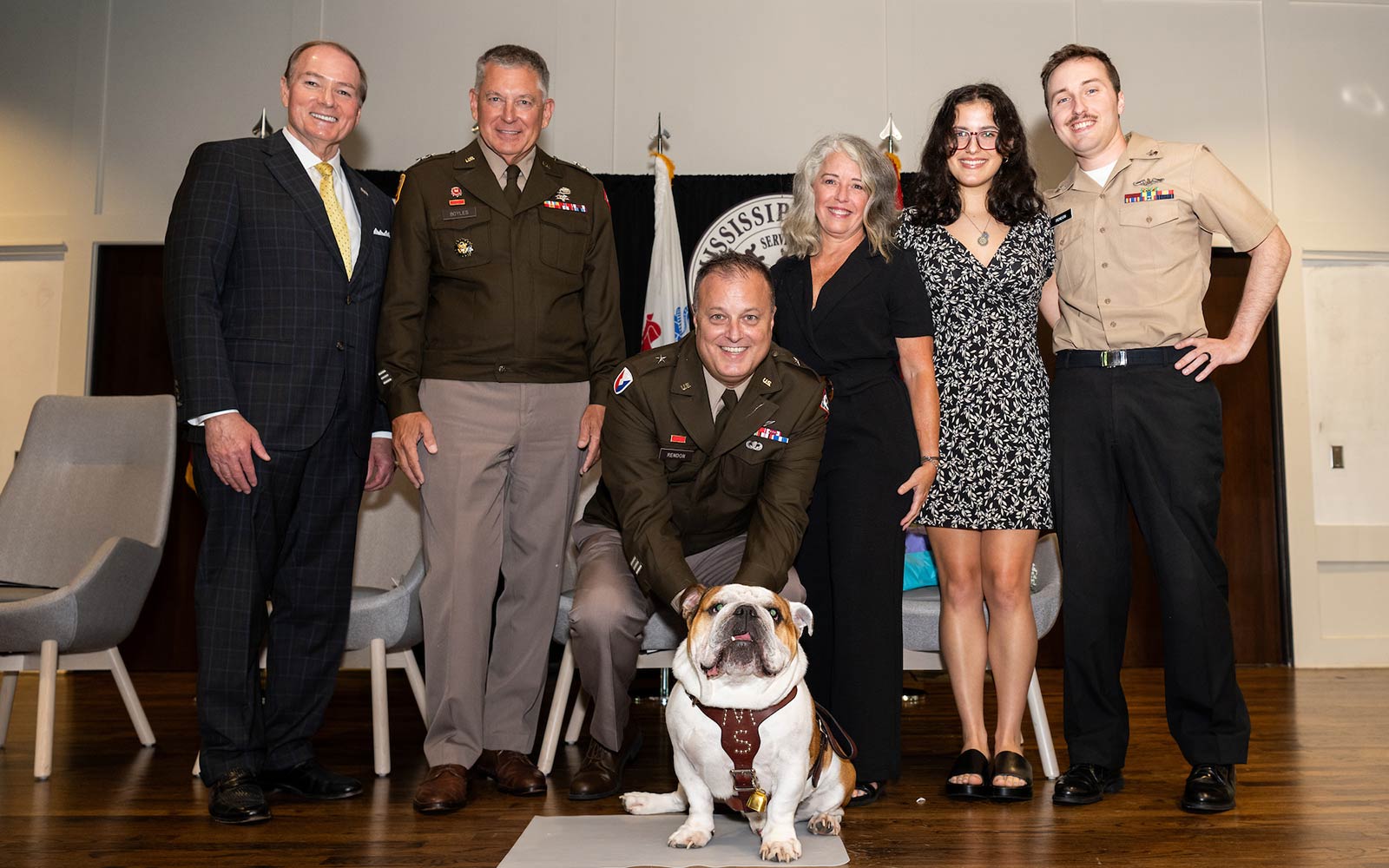Mississippi
For shrinking Mississippi River towns, frequent floods worsen fortunes
Homes outside the protected area got swamped, though. Much of the flooding was from Bear Creek as the Mississippi backed up into it.
Over the years, silt from the river has worked its way into the creek, clogging storm drains and worsening flash flooding, Mayor Barry Louderman said.
Louderman estimated at least a half-dozen companies that employed a combined 300 to 400 people “are just gone, were never replaced,” due to persistent flooding. First Street’s models show Hannibal would have likely grown over the last two decades if not for flooding.
Steve Dungan has lived on Ely Street near Bear Creek all of his 54 years. As a child, he fished from the porch when the creek rose.
One summer night in 1993, Dungan was at a hospital in nearby Quincy, Illinois, where his wife was about to give birth to their daughter. He got a call that the water was coming up fast, and relatives and friends were scurrying to salvage what they could from his home by boat.
“We lost the waterbed, stove, refrigerator — stuff they couldn’t pack out,” he said.
With family anchoring him to the area, he chose to stay.
Ray Allen, another longtime Ely Street resident who also operated an auto repair and welding shop there, did not. He recalled being awakened by a noise during that 1993 flooding.
“Jumped up out of bed and was standing in water knee-deep beside the bed,” Allen, now 80, recalled. “That’s a rude awakening, I’ll tell you that.”
The government bought out nearly all of the homes on Ely Street and in many other neighborhoods vulnerable to Bear Creek. People scattered. Some, like Allen and his wife of 63 years, Rachel, left town, though they moved back about 12 years ago and now live high on a hill.
He misses his old friends and neighbors on Ely Street.
“All of the people that were good friends down there kind of got busted apart,” he said.
West Alton is a two-hour drive downriver from Hannibal. In 1993, Sugar Vanburen watched as most of her mobile home floated down the river. Only what was bolted down remained — the floor, a toilet and furnace.
Her sister left, but not Sugar. It’s where she grew up. She likes the quiet community. Her grandchildren go to a good school. Residents learn how to empty mud from the basement and get neighbors to help clean up.
After the 1993 flood, the Federal Emergency Management Agency offered buyouts to some facing severe flood risk. Recently, letters for a new round of voluntary buyouts went out.
Sugar threw hers away. But Robert Myers, St. Charles County’s planning and zoning division director, said the goal is to buy out as many as 100 homes across the county.
Mayor Richter recalls the West Alton of decades ago: three churches, an ice cream shop, four taverns where people hung out.
“Now we don’t have any churches. We have one tavern that’s open and it just got reopened not too long ago,” he said. “A lot of that community stuff is gone.”
Tom Silk lives next to a vacant lot that was once home to the church he attended and where he married.
Silk likes the town. It’s rural, peaceful. But it takes work to stay. His front door still bears the water stain right at the handle marking the 2019 flood — second-highest on record.
That year, he packed up a U-Haul and left for about two months. It took a year and a half to repair his house — he did the work after finishing shifts loading trucks at a FedEx warehouse — but he wanted to stay.
“It’s quiet, it is the country life, but … you are still by the city if you need to do anything or go anywhere,” he said.
Richter said flooding is so frequent that he probably wouldn’t live in town if he didn’t grow up locally, farm and have strong community connections. The town has organized July 4 celebrations and a flea market family fun day in the fall. People come back. But there’s a sense of loss.
Vanburen misses neighbors who moved away.
“Everybody’s gone,” she said. “This is a ghost town.”
Cairo, Illinois, is surrounded by a levee at the confluence of the Ohio and Mississippi rivers. It’s endured a lot.
First rising as a hub for steamboats in the 19th century, Cairo peaked around 1920 with about 15,000 people, including a sizeable Black population. It had attractive retail shops, several rail lines and a healthy manufacturing sector. It was also strictly segregated, and protests in the 1960s met violence that spiraled for years. The city has hemorrhaged people during a downward economic trend that’s never stopped, according to local historian Klinkenberg.
Its population today is about 10% of peak. Retail and manufacturing are gone. For a long time, it didn’t have a grocery store. Most of the place is abandoned, with brick buildings cracked by growing trees.

Mississippi
Mississippi State’s Rendon promoted to brigadier general surrounded by family, friends and servicemen

Contact: Mary Pollitz
STARKVILLE, Miss.—On Thursday afternoon [July 25], Mississippi State alumnus Andrew Rendon, the university’s executive director for Veterans and Military Affairs, was promoted from colonel to brigadier general in the Mississippi National Guard. Less than one-half of 1% of officers in the Army achieve the rank of a general officer.
The first action Gen. Rendon took after his promotion was to present his daughter Sarah and wife Hilary with flowers while thanking the three institutions he credited with his success—MSU, the Mississippi National Guard and his family.
“Not once have those institutions left me alone. Not once have they let me down. Not once have those institutions not cared for me,” he said. “In every instance, as I asked for help support or assistance, they have been there for me.”
MSU President Mark E. Keenum commended Rendon with his leadership supporting the armed forces, military students and his country. Rendon’s service and commitment to others—along with Bulldogs, cowbells and Edam cheese—is what the university is known for, Keenum added.
“We’re also known for our values. Our core values that define who we are at MSU: integrity, strong work ethic and respect for others,” Keenum said. “Gen. Rendon embodies all of these values, and he lives them every single day. So, it’s an honor to recognize him and his achievements this afternoon as he begins this new chapter of service to our state and our nation.”
The promotion ceremony for the Guard’s commander of the 66th Troop Command took place in Wingo Auditorium of the university’s Old Main Academic Center. The event was officiated by MSU alumnus Maj. Gen. Janson D. Boyles, Adjutant General of Mississippi.
Rendon began his military career nearly 30 years ago as an Army Aviator. After spending nine years on active duty, with assignments in Germany and Alabama, Rendon joined the MSNG in 2004 serving in various aviation roles throughout the state, from logistics officer and platoon leader to his current role as troop commander and MSNG director of Joint Staff.
Rendon holds both a Ph.D. and Master of Public Policy and Administration degree from MSU. He also has a Bachelor of Arts degree from the University of Mississippi and a Master of Strategic Studies degree from the U.S. Army War College.
His military awards and decorations include the Bronze Star Medal, six Meritorious Service Medals, the Senior Army Aviator Badge, U.S. Army Parachutist Badge, and numerous other federal and state awards.
Mississippi State University is taking care of what matters. Learn more at www.msstate.edu.

Mississippi
Where can you go from Jackson by train? Curious Mississippi answers

Editor’s note: This is the latest edition of Curious Mississippi, a service to the readers of the Clarion Ledger. Other questions answered by Curious Mississippi included road safety, potholes, cicadas and the international nature of the Jackson airport. Last week, we answered the question of why Mississippi roads are brown. Readers can submit questions by email to CuriousMississippi@ClarionLedger.com and editors will pick out the best and reporters will answer them in an upcoming edition.
Looking to take a trip from Jackson? The city’s Amtrak station located in Union Station allows travelers to take a train to a handful of different destinations via a direct route.
However, there are downsides when opting for a train ride.
Getting North and South by train from Jackson is relatively easy. Going East or West, and you are out of luck.
Three major cities with direct routes by train from Jackson include New Orleans, Memphis and Chicago. A trip to New Orleans in your own car takes just under three hours compared to the four-and-a-half-hour train ride from Union Station. A car drive to Memphis takes about one and a half hours less than a train ride. A plane ride to Chicago is significantly shorter and comparative in price.
So, why opt for a train over a plane or automobile?
Some find trains a romanticized mode of transportation, offering a unique experience not found when sitting on a plane or car or bus. Trains often offer passengers with more room and leisurely views of the surrounding scenery. Train stations and trains themselves are also often easier to navigate for those with disabilities.
Jackson resident Khalilah Wright and her daughter Chandler Wright waited in Union Station Tuesday afternoon for the evening train heading to Chicago, where they had moved from four years ago. Khalilah said they opted for a train ride because Chandler doesn’t like planes.
Khalilah said she and her family travel to Chicago often. She takes a plane when traveling with her husband and train when traveling with her daughter. While both have advantages and disadvantages, Khalilah said riding the train provides more bonding time with Chandler because they can chat while waiting in the station and during the longer ride.
The train is “nice and relaxing,” Khalilah said, and she enjoys the views from the train cars with large windows. She also said a train is a much better option for her mother, who is disabled, to travel to Jackson from Chicago.
Like plane tickets, Amtrak ticket prices vary depending on upgrades and when you book the ticket. Read on to find out which cities you can reach directly from the Jackson Amtrak station. These “direct routes” refer to the cities to which you can buy a one-way or round-trip ticket. There are often several stations in between Jackson and these final destinations, so they are not considered “non-stop” routes.
How to get to Chicago by train
A trip to Chicago from Jackson by an Amtrak train takes about 15 to 16 hours. Overnight rides are offered so you can board the train at 6 p.m. and arrive in the Windy City by 10 a.m. the next morning.
A one-way ticket to Chicago from Jackson for one adult will set you back about $150 to $200 for a coach ticket or anywhere from $300 to $900 for a private room with a restroom and shower.
Five times the fun? A second set of quintuplets is born in Mississippi in less than two years. What are the odds?
How to get to New Orleans by train
A train ride to New Orleans from the Jackson Amtrak station takes around four and half hours. A round trip is feasible for a quick weekend get away.
A ticket for a single adult one-way is about $50 to $60 for a coach ticket or about $100-$150 for a private room with a restroom or sink.
How to get to Memphis by train
Memphis is also a good option for a weekend trip. A train ride from the Amtrak Jackson station to the Memphis station clocks in at just over four and a half hours.
Tickets cost anywhere from about $30 to $50 for a single adult coach ticket or from $100 to $300 for a private room.
Recent answers by Curious Mississippi: Curious Mississippi: Why is car registration so expensive in MS and even more so in Jackson?
Where else can I go by train from Jackson?
There are several other stops on the direct route from Jackson. The stations on this route are not the only Mississippi stations. There is a line that runs from New Orleans connecting stations in Picayune, Hattiesburg, Laurel and Meridian before continuing through Alabama.
Here are all the cities with Amtrak stations on the direct route to and from Jackson, starting with New Orleans and heading north ending with Chicago:
- New Orleans
- Hammond, Louisiana
- McComb, Mississippi
- Brookhaven, Mississippi
- Hazlehurst, Mississippi
- Jackson
- Yazoo City, Mississippi
- Greenwood, Mississippi
- Marks, Mississippi
- Memphis
- Newbern-Dyersburg, Tennessee
- Fulton, Kentucky
- Carbondale, Illinois
- Centralia, Illinois
- Mattoon, Illinois
- Effingham, Illinois
- Champaign-Urbana , Illinois
- Kankakee, Illinois
- Homewood, Illinois
- Chicago
Got a news tip? Contact Mary Boyte at mboyte@jackson.gannett.com
Mississippi
A popular Biloxi beach restaurant with NOLA ties is for sale: ‘Rarity on the Gulf Coast’

A popular Biloxi beach restaurant that has a sister location in New Orleans has hit the market for more than $3 million.
Lucy’s Retired Surfer Bar, at 1775 Beach Boulevard, opened on the Mississippi Coast in 2019 after new owners completed a full renovation to the three-story building that was once Bacchus on the Beach.
The Lucy’s brand was a welcome addition to “Restaurant Row,” a block of property in Biloxi lined with eateries that have beachfront access. This area is commonly packed with visitors and is across the street from Big Play, an entertainment center and bowling alley, and Finishline Performance Karting, a go-kart track.
The Biloxi location has a beachfront tiki bar with lots of outdoor seating, fun games for families and an area for live music on the weekends.
The Southeast Commercial Real Estate listing calls the opportunity to own the 8,263 square feet building “a rarity on the Gulf Coast.”
An elevator was recently installed for easy access to the top floors, and all of the fixtures and furniture are included for $3,299,000. A lease option is also available.
The restaurant remains open for now, but Southeast Commercial Real Estate co-founder Tim Carlson said Thursday that the Lucy’s brand is not part of the sale.
Lucy’s in Biloxi has sister locations in New Orleans and Aruba. They also have a rentable food truck serving the New Orleans metro area.
-

 World1 week ago
World1 week agoOne dead after car crashes into restaurant in Paris
-

 Midwest1 week ago
Midwest1 week agoMichigan rep posts video response to Stephen Colbert's joke about his RNC speech: 'Touché'
-

 News1 week ago
News1 week agoVideo: Young Republicans on Why Their Party Isn’t Reaching Gen Z (And What They Can Do About It)
-

 News1 week ago
News1 week agoIn Milwaukee, Black Voters Struggle to Find a Home With Either Party
-

 Politics1 week ago
Politics1 week agoFox News Politics: The Call is Coming from Inside the House
-

 News1 week ago
News1 week agoVideo: J.D. Vance Accepts Vice-Presidential Nomination
-

 Movie Reviews1 week ago
Movie Reviews1 week agoMovie Review: A new generation drives into the storm in rousing ‘Twisters’
-

 World1 week ago
World1 week agoTrump to take RNC stage for first speech since assassination attempt




/cdn.vox-cdn.com/uploads/chorus_asset/file/25547838/YAKZA_3840_2160_A_Elogo.jpg)










